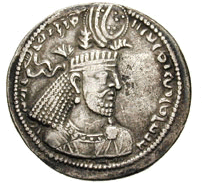295
| Millennium: | 1st millennium |
|---|---|
| Centuries: | 2nd century · 3rd century · 4th century |
| Decades: | 260s · 270s · 280s · 290s · 300s · 310s · 320s |
| Years: | 292 · 293 · 294 · 295 · 296 · 297 · 298 |
| 295 by topic | |
| Politics | |
| State leaders – Sovereign states | |
| Birth and death categories | |
| Births – Deaths | |
| Establishment and disestablishment categories | |
| Establishments – Disestablishments | |
| Gregorian calendar | 295 CCXCV |
| Ab urbe condita | 1048 |
| Assyrian calendar | 5045 |
| Bengali calendar | −298 |
| Berber calendar | 1245 |
| Buddhist calendar | 839 |
| Burmese calendar | −343 |
| Byzantine calendar | 5803–5804 |
| Chinese calendar | 甲寅年 (Wood Tiger) 2991 or 2931 — to — 乙卯年 (Wood Rabbit) 2992 or 2932 |
| Coptic calendar | 11–12 |
| Discordian calendar | 1461 |
| Ethiopian calendar | 287–288 |
| Hebrew calendar | 4055–4056 |
| Hindu calendars | |
| - Vikram Samvat | 351–352 |
| - Shaka Samvat | 216–217 |
| - Kali Yuga | 3395–3396 |
| Holocene calendar | 10295 |
| Iranian calendar | 327 BP – 326 BP |
| Islamic calendar | 337 BH – 336 BH |
| Javanese calendar | 175–176 |
| Julian calendar | 295 CCXCV |
| Korean calendar | 2628 |
| Minguo calendar | 1617 before ROC 民前1617年 |
| Nanakshahi calendar | −1173 |
| Seleucid era | 606/607 AG |
| Thai solar calendar | 837–838 |
| Wikimedia Commons has media related to 295. |

King Narseh of Persia
Year 295 (CCXCV) was a common year starting on Tuesday (link will display the full calendar) of the Julian calendar. At the time, it was known as the Year of the Consulship of Tuscus and Anullinus (or, less frequently, year 1048 Ab urbe condita). The denomination 295 for this year has been used since the early medieval period, when the Anno Domini calendar era became the prevalent method in Europe for naming years.
Events
By place
Roman Empire
- Galerius, Roman Caesar in the Balkans, is dispatched to Egypt to fight against the rebellious cities Busiris and Coptos.
Asia
- King Narseh, Shah of the Sassanid Empire, declares war on Rome and invades Armenia with his army.
- Tuoba Luguan divides the territory of the Tuoba clan into three areas. His nephews Tuoba Yilu and Tuoba Yituo become chieftains of the western and central areas of (Shanxi province). Tuoba Luguan dominates the eastern area (near Hohhot).
By topic
Religion
- Petra rejoins the province of Palestine, and is converted to Christianity by the Syrian monk Barsauma.
Births
- Shi Hu, Chinese emperor of Later Zhao (d. 349)
Deaths
References
This article is issued from Wikipedia - version of the 8/8/2016. The text is available under the Creative Commons Attribution/Share Alike but additional terms may apply for the media files.